Analysis of the manufacturing process of forged wheels
The Fundamentals of Forged Wheel Manufacturing
Defining Forged vs Cast Wheel Production
When it comes to wheels, there's basically two ways they get made: forging versus casting. Forged wheels start with metal billets that get hammered under massive pressure, resulting in something much denser than what happens when molten metal just gets poured into molds for cast wheels. The forging process gives these wheels better mechanical qualities too, especially when it comes to resisting wear and tear over time. That's why many serious off-roaders swear by them for their rugged terrain adventures. These wheels also tend to be lighter while still being stronger, which makes cars handle better and saves on gas. Drivers who经常 drive on rough roads or need extra durability will notice these performance differences right away.
Why Forging Enhances Strength for Off-Road Applications
Forging wheels makes them much stronger because it lines up the metal grains properly, which is really important for anyone who drives off road regularly. When those grains are aligned right, the wheels can take on rough trails and all sorts of punishing impacts that normal roads never see. Some studies show that forged wheels can hold up to about 30% more weight before they start to bend or warp. Real world testing also shows fewer broken wheels when drivers hit big rocks or deep potholes at speed. Anyone who spends time on dirt tracks knows how valuable this reliability is. Forged wheels just keep going when others would fail, making them worth every extra penny for serious off roading adventures where getting stuck means trouble.
Key Components: From Billets to Finished Rims
When making wheels through forging, we start with metal billets typically made of aluminum. These billets help create consistent quality throughout the life of the wheel. The process involves several key stages. First comes preheating the billets to get them ready for shaping. Then there's the actual forging where pressure forms the metal into specific shapes with pretty good accuracy. Every step along the way affects how the finished wheel turns out. Some factors determine how long it lasts, others affect how it looks and balances properly on a vehicle. Smart manufacturers pay close attention to all these details during production so their wheels can handle everything thrown at them whether it's daily driving or extreme conditions on race tracks.
Step-by-Step Forging Process Analysis
Stage 1: High-Pressure Aluminum Forging Techniques
The high pressure forging method lies at the heart of making aluminum wheels, where massive hydraulic force shapes the metal into its final form. What makes this technique so effective is how it actually changes the internal structure of the aluminum itself, which translates into better performance across the board. Research shows that when wheels go through this intense forging process, they become much tougher and resist defects even when put under serious strain something that matters a lot for vehicles tackling rough terrain or harsh driving conditions. Getting this first step right really matters because it creates the base needed to hit those exact measurements and specifications that manufacturers need for all the other parts of production down the line.
Precision CNC Machining for Jeep & All-Terrain Wheels
CNC machining plays a big role in creating those detailed, attractive wheels we see on Jeeps and off-road vehicles. The technology behind it blends advanced machinery with careful attention to detail, cutting out shapes that improve airflow around the wheel while making sure they fit just right on the vehicle. For wheels meant to handle rough trails and rocky paths, getting that fit right matters a lot because any looseness can cause problems down the road. What makes this process so valuable is how it cuts down waste materials and speeds things up during manufacturing. Factories can produce hundreds or even thousands of identical wheels without much variation, which saves money in the long run when building entire fleets of trucks or SUVs for dealerships nationwide.
Heat Treatment for Enhanced Durability in Chrome Wheels
The right kind of heat treatment makes all the difference for forged wheels, especially chrome ones that need to stand up to serious heat exposure during operation. Solution heat treating and similar methods tackle those common worries customers have about how long their wheels will last before showing wear and tear. When done correctly, this treatment keeps chrome wheels looking good while maintaining their strength structure, something that matters a lot when drivers push them through harsh road conditions or track days. For manufacturers aiming to produce reliable products, getting the heat treatment right isn't just important it's absolutely essential for making wheels that survive both daily commutes and weekend adventures without breaking down.
Material Science Behind Durable Wheel Creation
Aerospace-Grade Aluminum Alloys Explained
Aluminum alloys used in aerospace applications work really well when making forged wheels because they offer great strength while being relatively light weight plus they resist corrosion pretty effectively. Automotive engineers love working with these materials since they can boost vehicle performance and extend how long parts last before needing replacement. Research shows that wheels made from this kind of material tend to last much longer under normal driving conditions compared to traditional alternatives. Factory workers run all sorts of tests on these alloys to make sure they meet strict safety requirements set by regulatory bodies across different countries. The whole inspection process gives car makers peace of mind knowing their products won't fail unexpectedly even when exposed to harsh road environments over time.
Grain Structure Optimization Through Forging
Forging really makes a difference when it comes to how aluminum alloy grains align, something critical for making wheels that last longer. When we forge metal, we basically realign those tiny grain structures inside the alloy. This does three main things: makes the material better at holding weight, cuts down on cracks forming, and generally strengthens the whole wheel. For drivers who tackle rough terrain or put their vehicles through tough conditions regularly, this matters a lot. Industry experts know from experience (and some pretty detailed studies too) that when those grains line up nicely and consistently throughout the metal, the wheels can handle all sorts of stress without failing. That means safer rides and wheels that don't need replacing so often.
Comparing Steel Wheels vs Modern Forged Alternatives
Traditional steel wheels definitely have their place, but modern forged wheels bring something special to the table thanks to being lighter and tougher than ever before. When compared to regular steel, these forged versions cut down on what's called unsprung weight in cars, making them handle better and speed up faster too. That's why race teams and performance enthusiasts love them so much they get all the power without looking out of place on the road either. Real world tests back this up showing that lighter forged wheels actually improve how a car moves around corners and responds when driven hard. As more people start craving wheels that do more than just look good, we're seeing forged options take off while steel wheels slowly fade into the background for everyday use.
Quality Control in Wheel Production
Non-Destructive Testing Methods
Non destructive testing methods play a crucial role in checking how strong and reliable wheels stay across different situations they face. The industry commonly uses things like ultrasonic tests and X-ray imaging to spot flaws without actually harming the wheel itself. When manufacturers apply these tests throughout the production process, it cuts down on defects that would otherwise lead to costly warranty repairs while also building trust among customers who want quality products they can depend on. Safety regulators definitely push for this kind of testing especially in applications where failure could be dangerous. After all, nobody wants their wheels falling apart on the road. These testing approaches help make sure wheels pass all those tough safety requirements and perform as expected when put to work.
Meeting TUV/SAE Standards for Racing Applications
When manufacturers follow TUV and SAE standards, they're basically ensuring their wheels can take what competitive racing throws at them. What these standards do is establish pretty tough requirements through extensive testing and certification procedures. This whole process checks if the forged wheels are safe enough, last long enough, and perform well under pressure. Wheels that pass these tests tend to sell better in the market too. Racers know this and trust them because they've been proven reliable time after time. Getting certified against these standards isn't just good for business either. It builds credibility for manufacturers wanting to work with serious racing teams and secure sponsorships down the road.
Weight Tolerance Checks for Performance Wheels
Checking weight tolerances matters a lot when it comes to performance wheels needing to stay within certain limits because getting the weight right really does make a difference in high performance cars where even small changes matter. Getting the balance just right helps prevent those annoying vibrations that wear out tires faster and mess with how the car handles on the road. Testing by various manufacturers shows that keeping weight tolerances consistent actually improves both safety factors and how long the wheels last through all sorts of driving conditions. The attention paid to these details during quality control ends up delivering better performance over time, which explains why serious drivers tend to go for wheels built this way instead of cheaper alternatives.
Applications Across Vehicle Types
Optimizing Forged Wheels for Off-Road Tires
Forged wheels get designed specifically for off-road tires, taking into account particular tread patterns and load capacities to boost safety when driving over rough ground. They really matter for keeping things stable and under control when going across bumpy terrain. People who have tested these wheels report fewer flats and better power delivery from engine to road surface, something that makes all the difference during serious off-roading adventures. Manufacturers build them using special materials and structural features that hold up against harsh environments. This means the wheels stay intact even after long trips through mud, rocks, and other tough conditions where regular wheels might fail.
High-Speed Requirements for Track-Focused Designs
Forged wheels made for track use get built with extreme attention to detail so they can handle those crazy speeds without breaking a sweat. They cut down on weight but still manage to boost aerodynamics and give better grip when drivers push through corners at breakneck pace. Racing teams have seen time and again how wheel design directly affects lap times. Some top teams report improvements of up to half a second per lap just from switching to better wheels. The whole design thing usually means working hand in hand with actual race engineers who know exactly what pro drivers need out there on the circuit. These wheels don't just look good; they make cars respond faster and corner harder, which is why serious racers won't settle for anything less when it comes to competition.
Customization Trends in Chrome & Matte Finishes
People are getting really into customizing their wheels these days, especially with finishes like chrome or matte black. According to recent surveys, around 60% of car owners actually care quite a bit about how their wheels look, which has pushed automakers to stock showrooms with all sorts of finish options now. The whole thing does make cars look better obviously, but there's something else going on here too. Car companies see this as a way to stand out from competitors, giving drivers a chance to show off their style. And let's face it, nobody wants to drive something that looks exactly like everyone else's. Plus, some folks believe that nice wheels can bump up resale value when they're ready to sell later down the road.
Recommended Products
 Hot News
Hot News
-
Forged Carbon Products
2024-05-21
-
Forged Off-Road Accessories
2024-05-21
-
GVICHN Introduces Revolutionary Forged Two-Piece Product
2024-05-21
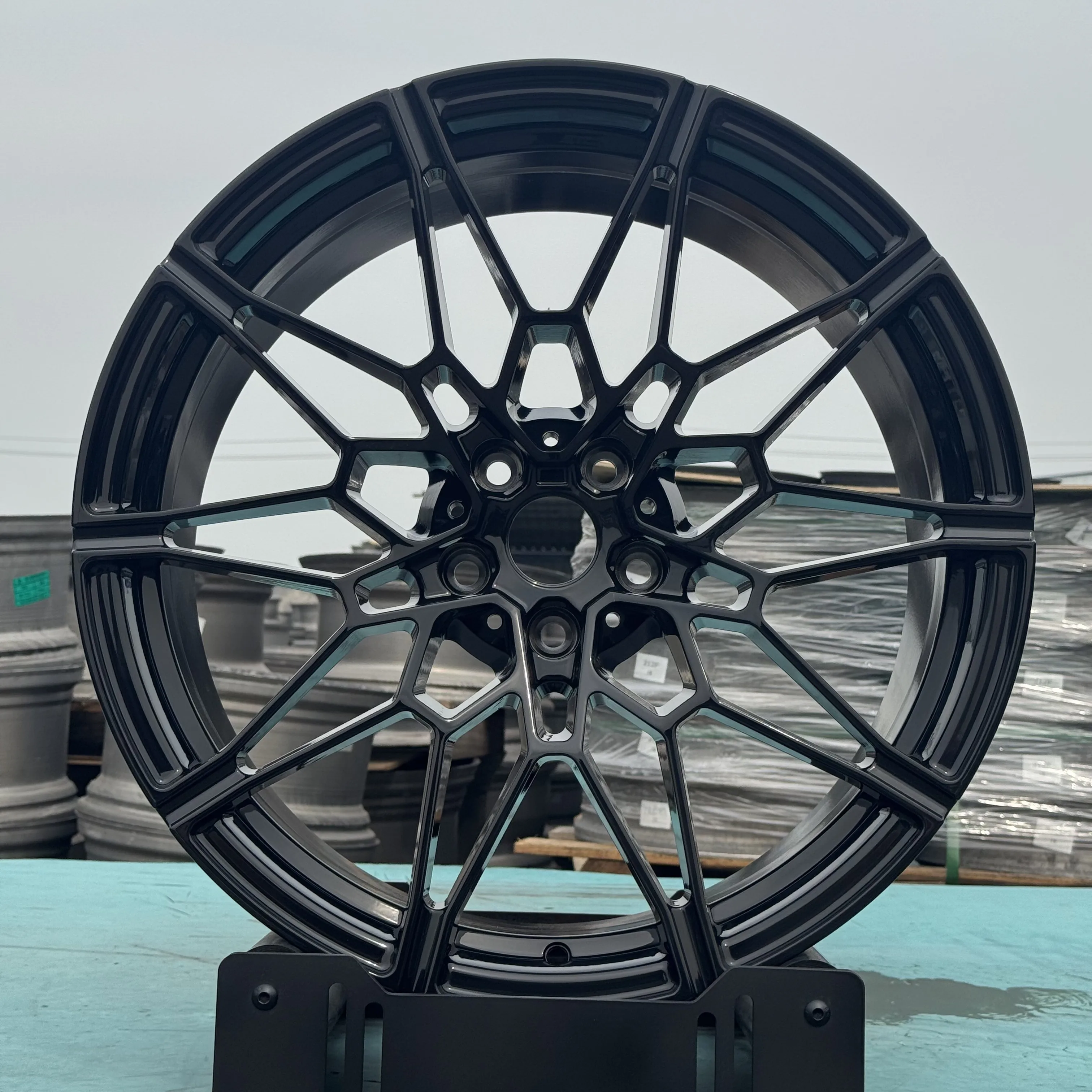

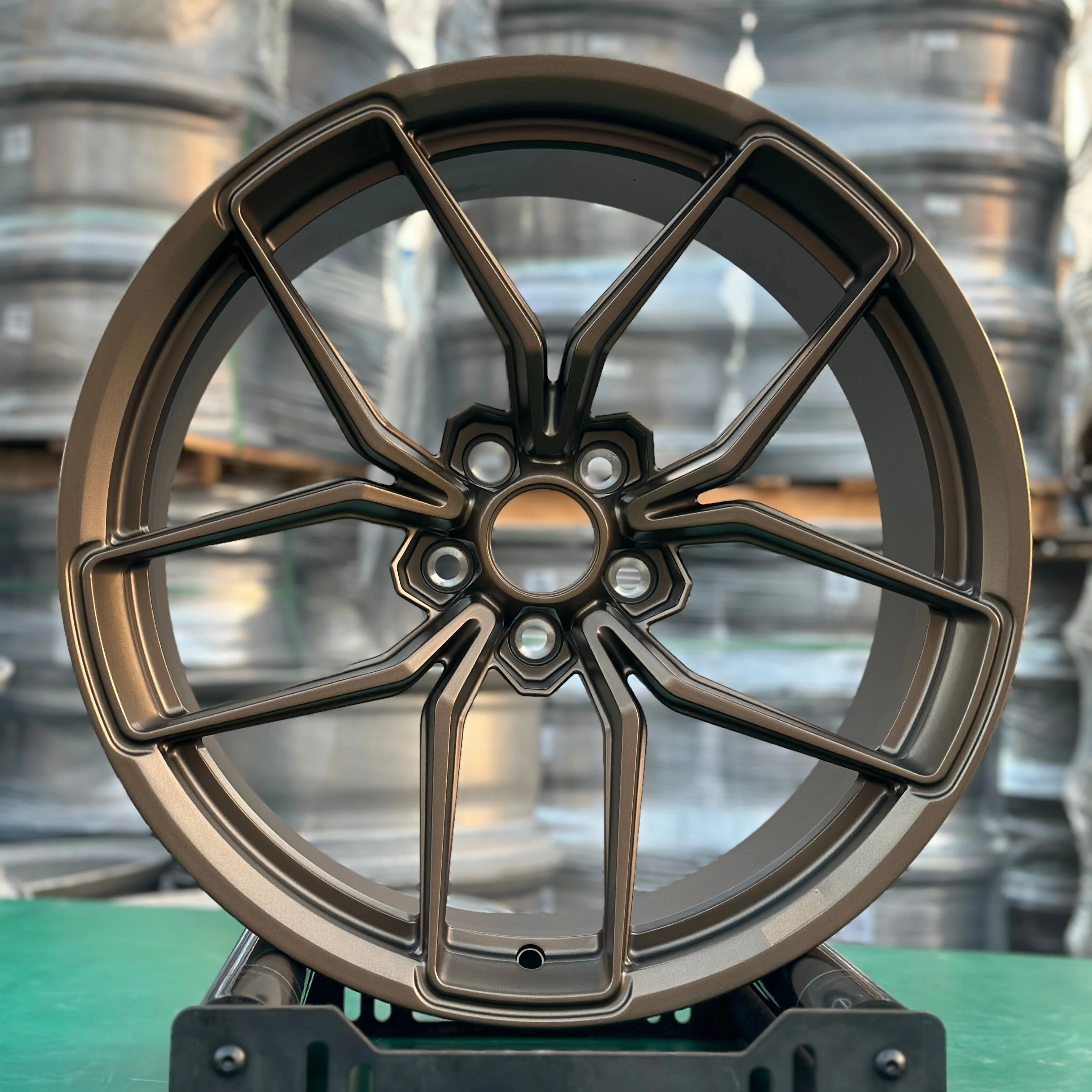
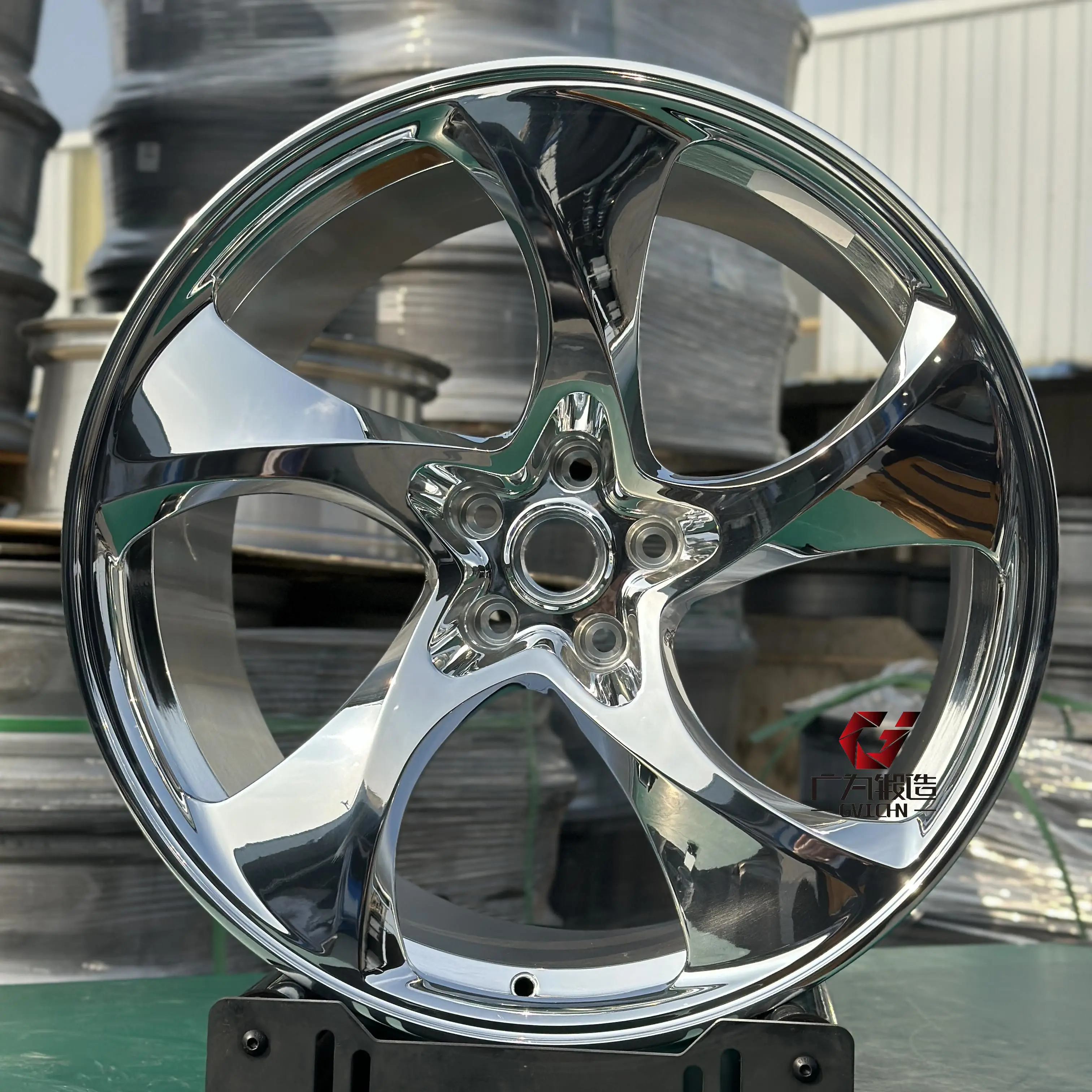
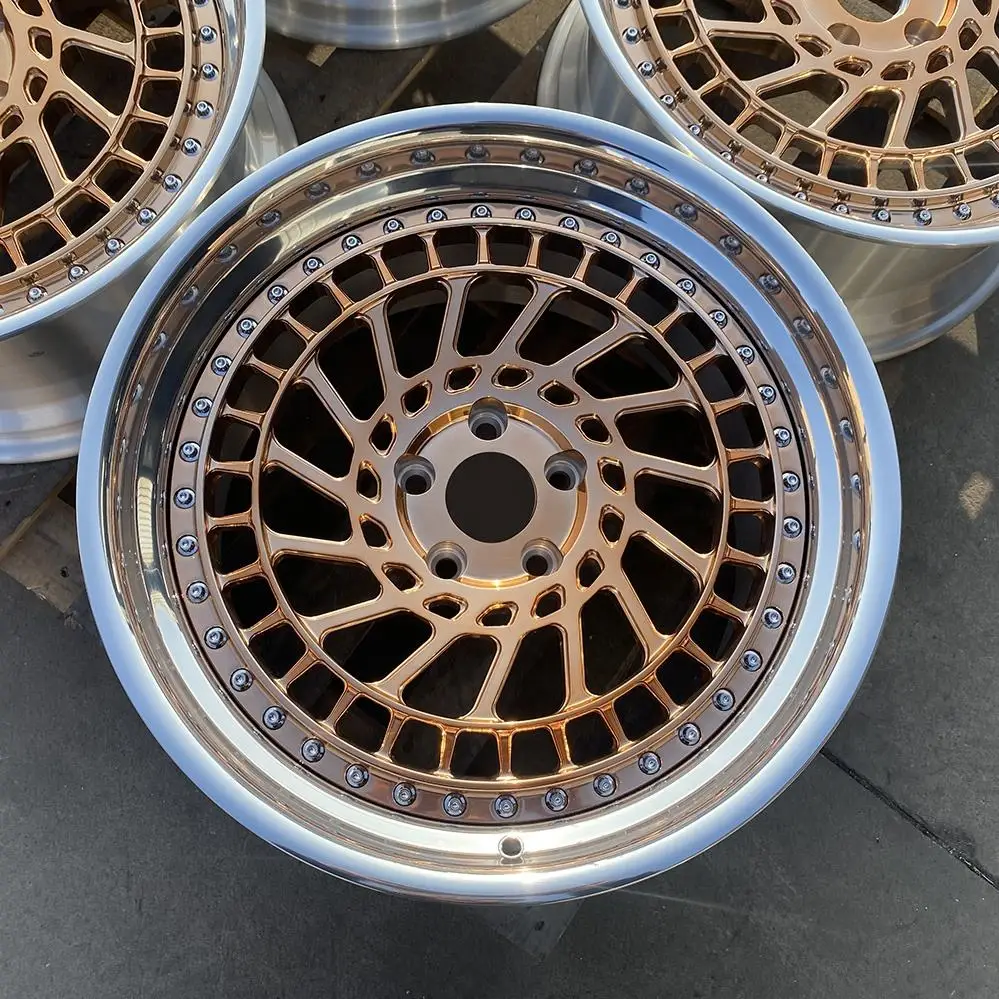
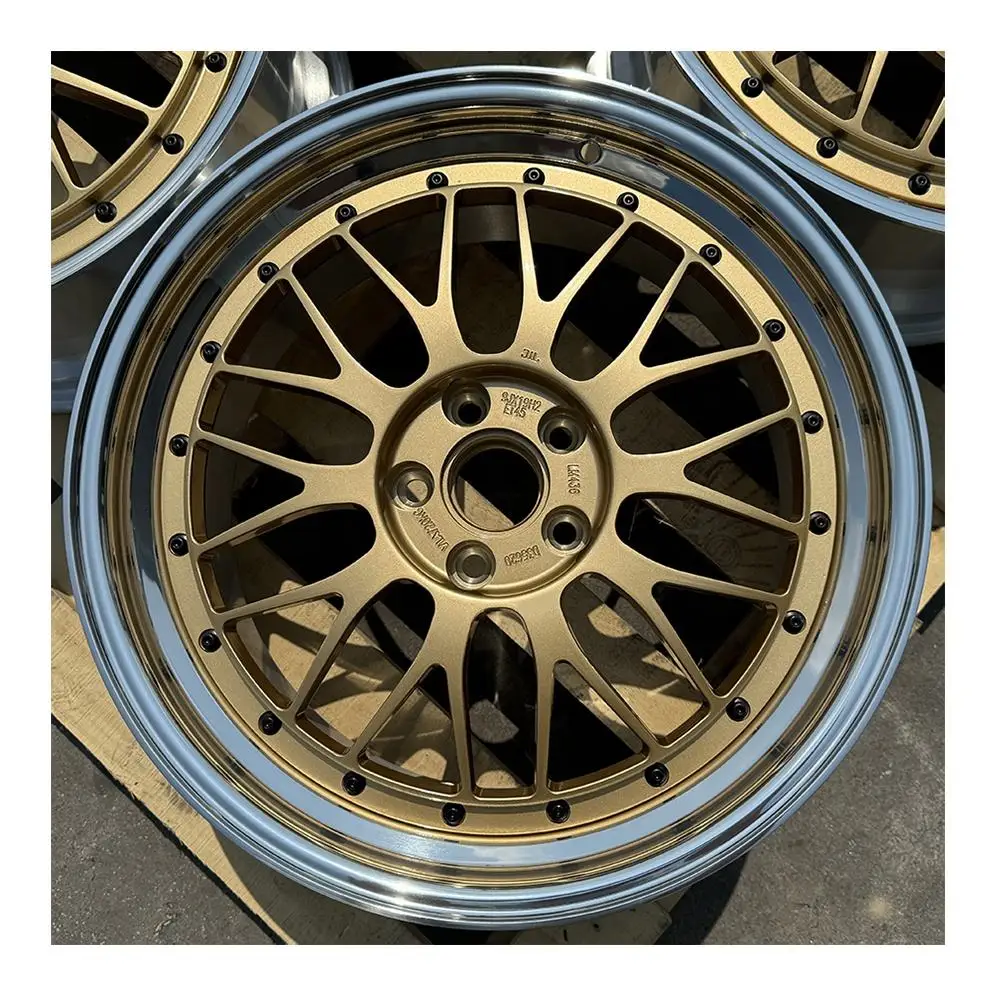
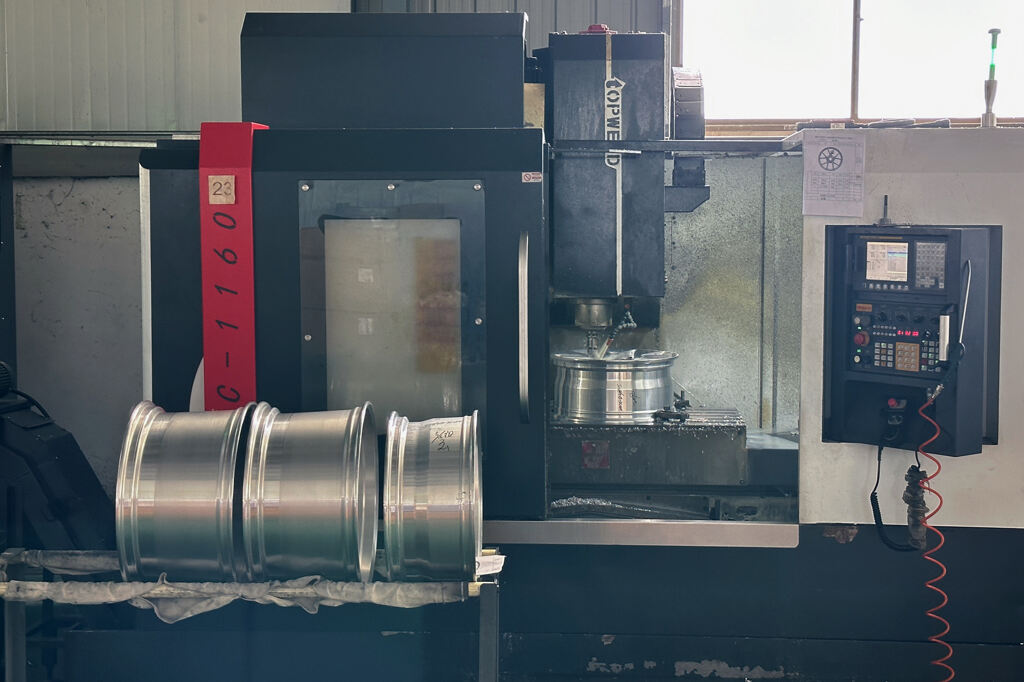
 ONLINE
ONLINE